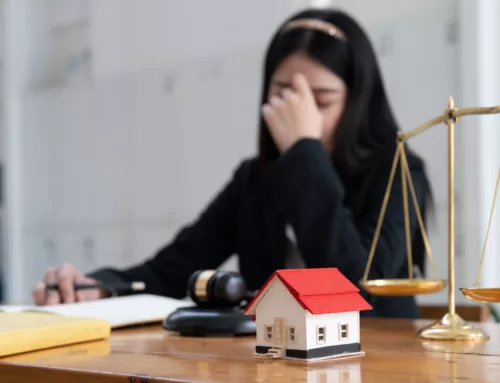A lien strip is where the lien of a lienholder, other than the first mortgage, is stripped and ultimately changes the status of the obligation owed to the lienholder from “secured” to “unsecured”.
Lien stripping allows you to get rid of the “wholly unsecured” liens on your property. When a mortgage or lien is put on your house, its priority against other liens is usually determined by when the lien was recorded with your county. For the most part, the earlier recorded lien has priority over any subsequent liens. So if your house gets foreclosed on, your first mortgage lender will be paid first from the sale proceeds before the lender on your second mortgage sees any money.
In order to properly “strip” a lien (be it a second mortgage, third mortgage, or a judgment lien), the value of the debtor’s home must be less than the amount owed on the superior mortgages or liens.
A commonly misunderstood aspect of lien stripping is understanding what is going on. If you owe money to someone, it is an “obligation”, or something that you are supposed to pay. Many companies that you incur an obligation to want to be extra sure they get paid. In order to do so, they make you give them a “lien” against your property. There are, therefore, two parts to each obligation owing on your home. Usually, homeowners sign a note, which is the obligation, and a deed of trust, which is the lien. A chapter 7 bankruptcy can wipe out your obligation to pay a mortgage, but it does not wipe out the lien. If you do not pay, the lienholder can foreclose and take the property back. In other words, the lienholder can use the property that you gave them a lien on to satisfy the obligation, even though you might not technically owe it anymore.
What an Arizona Bankruptcy Lawyer Can Do For You
In chapter 13, we have different rules, so we can get rid of the lien. Typically, a lien strip requires a special lawsuit, called an “adversary proceeding”, which is filed against your lienholder. Often there are differences of opinion as to the value of your property, and the issue could wind up going to trial in front of a bankruptcy judge.
Ultimately, if you are approved for a lien strip, it means that your obligation to the creditor is treated as unsecured (you do not necessarily have to pay all of it and may pay only a small percentage of what is owed). The catch to the lien strip is that, in order to preserve it, you must finish making all of the required payments in your chapter 13 bankruptcy. Once the chapter 13 bankruptcy is completed, by fulfilling all of the requirements of your plan and stipulated order confirming plan, a discharge can be entered in the chapter 13. Additionally, the judge will sign a final order stripping the lien. This order should be recorded with your county recorder in order to preserve it for the real estate records.
If your chapter 13 case is not completed, you will not get the benefit of the final order stripping lien. So, if your chapter 13 case is dismissed, no lien strip. You still owe the lienholder and they may foreclose if you do not pay them. If you convert your chapter 13 case to a chapter 7 case, no lien strip.
The concept of lien stripping in chapter 13 appears to be to give a fresh start to the homeowner debtor who puts his or her best efforts forward to try and pay their debts, but cannot pay all of them. As housing prices increase, lien strips will become less and less popular, eventually disappearing all together.
What Happens To Stripped Liens?
The stripped liens will receive the same treatment as your other unsecured debts (such as credit cards) in your bankruptcy. These debts usually receive nothing or a small amount and get discharged (wiped out) at the completion of your Chapter 13 bankruptcy. After discharge, your lender for the stripped lien will be required to remove its lien from your house.
Finding the Right Bankruptcy Lawyer in AZ
You may still be able to keep nonexempt property depending on the circumstances. If you are filing Chapter 7 or Chapter 13 bankruptcy, you need an experienced Arizona bankruptcy lawyer on your side. This can be a daunting process. Ask friends or family members for a legal referral.
Give Phoenix Fresh Start Bankruptcy Attorneys a call at 602-598-5075 to schedule a free consultation with one of our bankruptcy attorneys. If you have any other questions about bankruptcy, one of our attorneys will be more than happy to offer advice on your particular situation.











